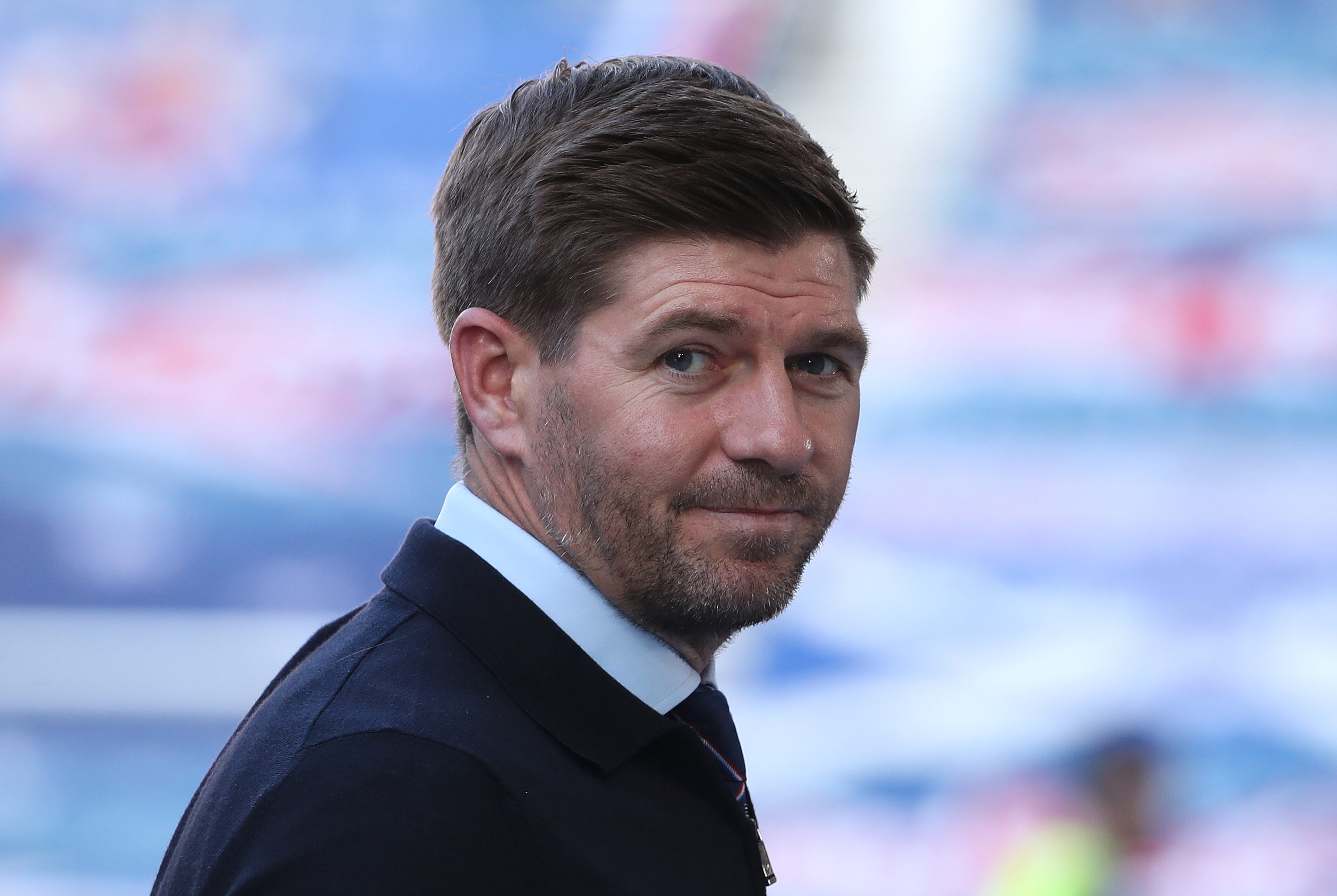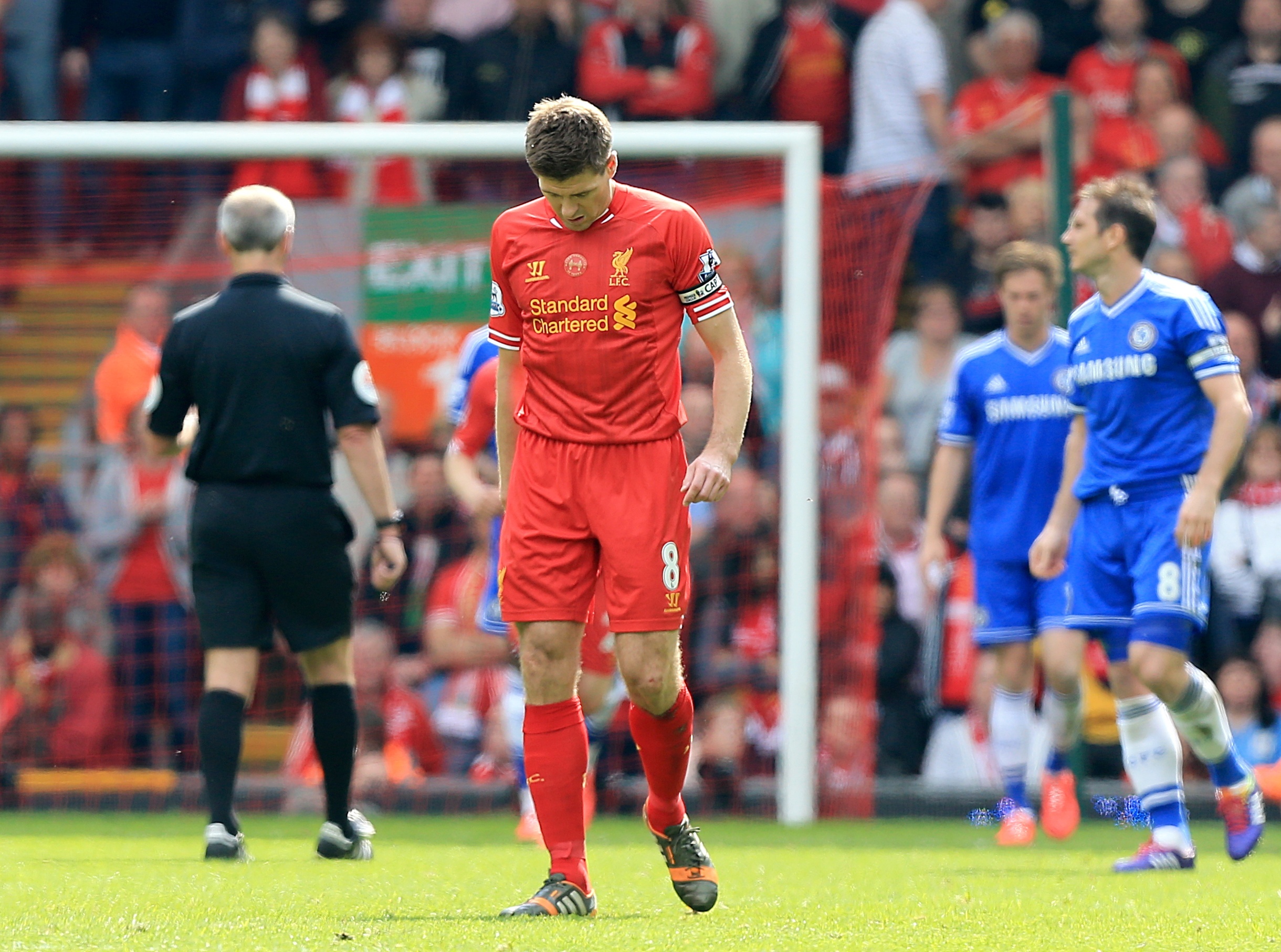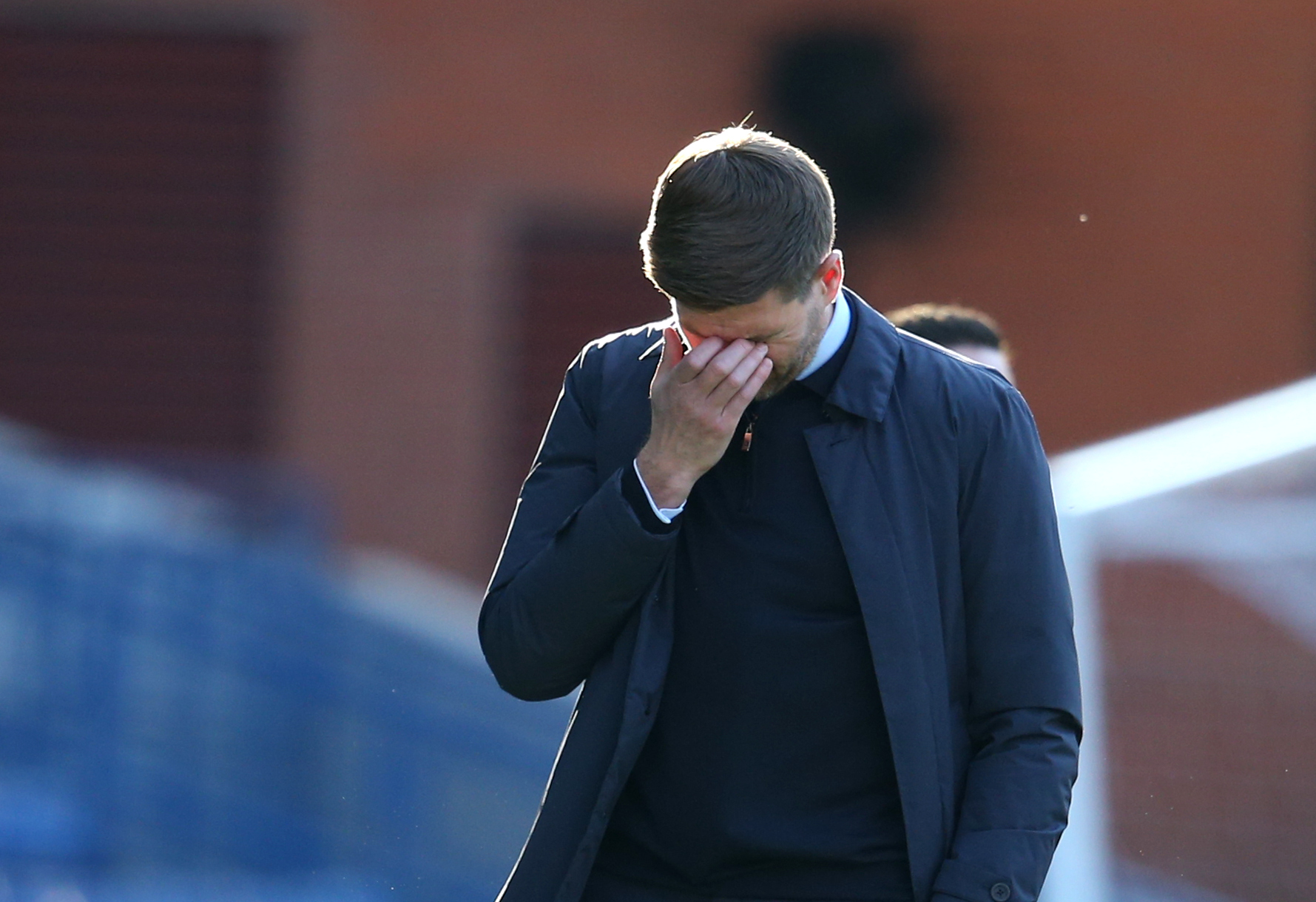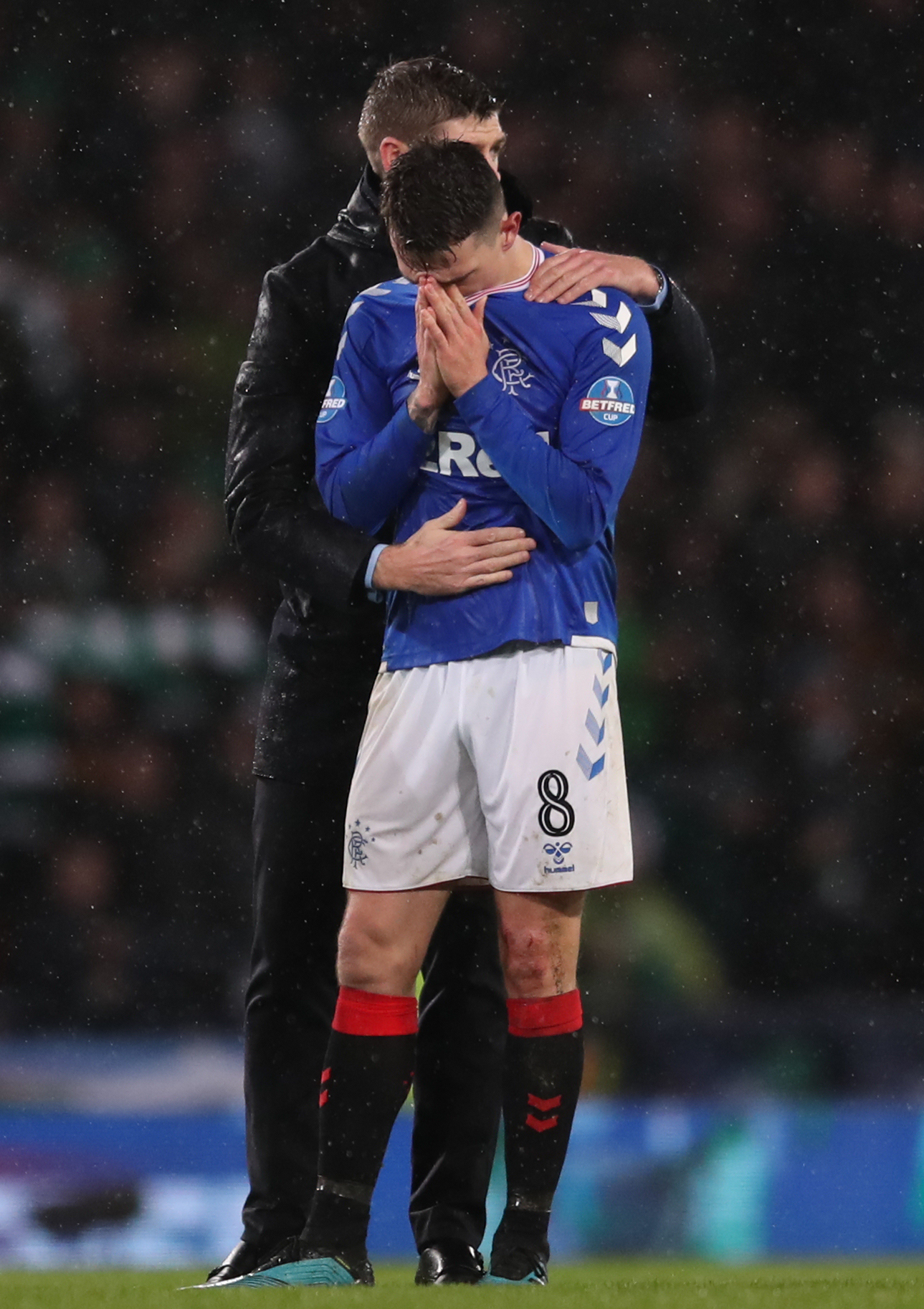Rangers boss Steven Gerrard hails strength behind ‘bouncebackability’ after lows

No one need remind Steven Gerrard about ‘the slip’.
The mental wound opened as his studs swiped at fresh air on that memorable day against Chelsea back in 2014 is unlikely to ever heal, the former Liverpool captain has previously admitted.
It might have been easy to conclude that day as he drove away from Anfield, tears streaming down his face amid the realisation that his hopes of leading his boyhood club to Premier League glory were over, that the lows of football were too painful, too scarring to put up with.
Was the momentary, passing joy of lifting a trophy worth it for the nagging torture when those what-if moments linger stubbornly in the memory?
Thankfully for the Rangers faithful, Gerrard decided it was.

There have been further moments, like last year’s Scottish Cup defeat to Hearts which left the Light Blues staring at a second barren season under Gerrard’s watch, when he considered chucking it all in.
But then comes the ‘bouncebackability’ the 40-year-old mentioned when talking to fans last week during a mental health initiative, arranged by Gers’ shirt sponsors 32Red. The capacity to shake off strain and return stronger for the experience.
Get FourFourTwo Newsletter
The best features, fun and footballing quizzes, straight to your inbox every week.
It is that faculty Gerrard has relied upon during the most testing of campaigns to lead the fallen Ibrox giants back to the top of Scottish football, claiming Rangers’ 55th title.
“Being a player it’s not always fantastic or enjoyable,” said Gerrard. “The journey takes you to some really high places in terms of winning stuff but it also takes you to some cruel lows.
“What I will say is I’m quite mentally strong in terms of bouncing back. I’ve accepted that being a player or manager is a journey of highs and lows.

“You have to deal with the bad days as well as the good and have that bouncebackability to use setbacks in your life to make you stronger.
“But there’s no doubt about it, I’ve had some low days during my career. From a personal point of view, I’ve also had setbacks in life to do with family members and stuff. The key to it all is never keep it in.
“Always try to have people around you who you can talk to and share problems with. I think that always helps you get back in a better place. That’s what I’ve learned from experience.”
Gerrard is quick to point out during his talk with a group of 25 supporters – brought together by the Rangers Charity Foundation and 32Red – that his experiences pale in comparison to some of the, quite literally, life-or-death battles with mental health some of them have endured and survived.
But modern day sport and coaching is now as much about tactics and talent as it is about nurturing emotions – a lesson he has learned more about with every passing day since his appointment, three years ago on Tuesday.
The debate on how football deals with mental health has been thrown back into sharp focus once again after Albion Rovers player David Cox announced last week he was quitting the game following an alleged taunt from Stenhousemuir’s Jonathan Tiffoney.
Gerrard has made public shows of support for his players, whether it be cuddling a sobbing Ryan Jack after losing last year’s Betfred Cup final or backing Glen Kamara to the hilt over the racial abuse he was subjected to by Slavia Prague’s Ondrej Kudela.
And that support is just as strong behind closed doors.
“Growing up at Liverpool and now being here at Rangers, football is a big part of my life,” he explained. “But as a manager, you have to deal with things that are above football.
“It could be a player loses a family member or a loved one could have a terminal illness, for example.
“These are things which fans and people on the outside don’t see. It’s my job to make sure that I’m as big a support as I can be.

“There are times when I have got to put football secondary and give them the support they need from a lifestyle point of view.
“They might need to be away from the game and get some family time. They might need on-going support or someone to open up to in a one-V-one situation so they can get things off their chest.
“I wanna be the type of manager who’s always there for my players and staff.
“My door is always open. We’ve dealt with all kinds of stuff. Obviously it’ll remain private but on all kinds of different levels in life and football we’ve had some real private chats with the players and tried to be that support network for them.”
Gerrard admits he found lockdown “really challenging” both in his professional life but also at home as he spent large periods of time away from wife Alex and their four children.

But suffering in silence was never an option.
“The thing for me is never, ever feel alone,” he added in his address to the fans.
“No matter where you are, there’s always someone or a group of people, whether they’re friends, family or courses like this, that can help you with your own personal experiences and direct you to a better place.
“I admire all of you for coming on. Sometimes as men you feel too proud to open up. But for me it’s certainly for the better.”
:: Rangers have secured a five-year partnership extension with 32Red, who will continue to deliver Team Talk – a men’s mental health initiative that gives Rangers fans a support network to share their own mental health experiences.
